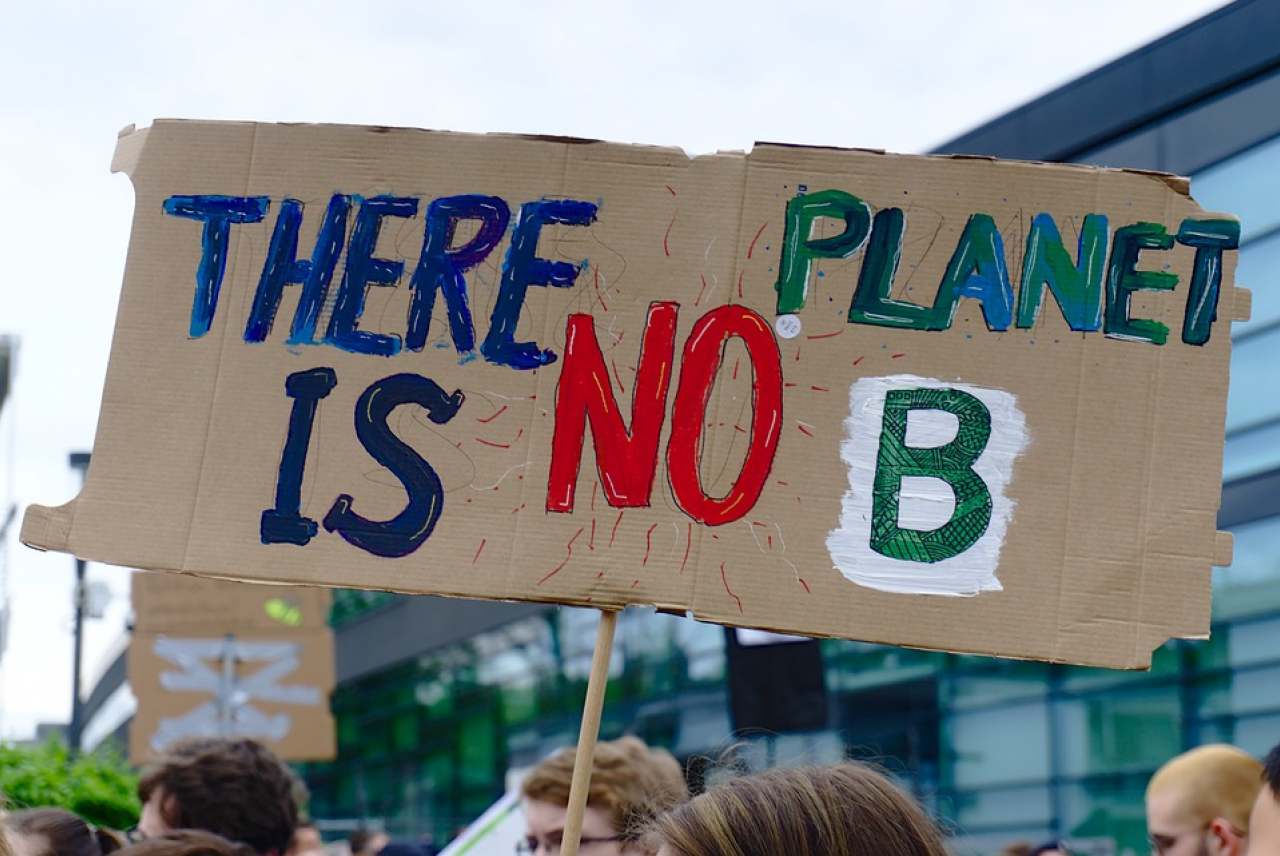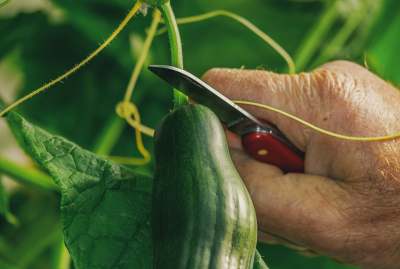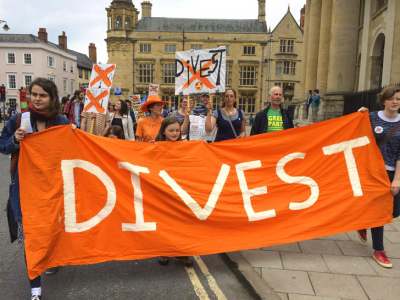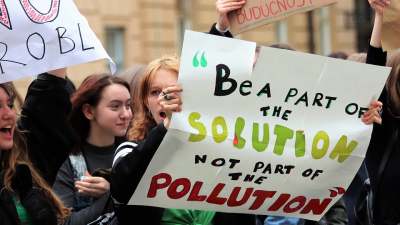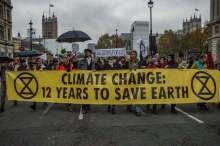The majority of our readers also advocated, and were taking part in, some form of campaigning.
47. Pressuring local councils
David from Bath is trying to persuade his local authority to go carbon neutral. While Heather from Tywyn (@heatherywales) formed a local action group (which was also suggested by many others) and got their local council to declare a climate emergency.
48. Using the ballot box
“Vote for people locally and nationally that want to make changes. Individual change is great but the larger scale changes require (unfortunately) governments and corporations to change” said one reader. Many of you also suggested voting for the Green Party.
There were many local campaigns mentioned too. @DeniseVFriend was campaigning for water fountains across Brighton to cut down on bottled water use.
49. Pressuring companies
@RebeccaFricker from Loughton was “lobbying companies regularly about sustainability”. Julia from Gosport contacts online businesses about the amount of packaging they use. Kerstin from London presses “local supermarkets to cut down on plastic packaging, unpacking everything [in store] and leaving packaging at the till”.
50. Signing and sharing online petitions
A large number were signing and sharing online petitions. No doubt we all have at least one in our inbox right now from the likes of change.org or SumofUs!
51. Campaigning at work
Adeline from London has been“launching a sustainability initiative at the company I work for (review of the way we do business, our suppliers, communication around climate change etc.)”
@keziasmithe has also been “advocating for and develop environmental policies” where she works.
52. Joining a group to take collective action
There were a whole range of campaigns that people are also supporting. Here are a selection:
suggested by
@Jules_MK @jomountford_ @K8Mcr @les_flack and others
Life-changing decisions
53. Birth strike
“Not bringing another human being into an already overpopulated world is a big way to reduce the amount of resources used by human kind”, lamented one reader. This view was echoed by others.
54. Changing jobs
Josh from London actually changed jobs “into an organisation that is mitigating climate change”.
Similarly @what_dodlestonian_does chose a career in tackling climate change and now works for the Environment Agency.
55. Embracing minimalism
A personal favourite of mine and practised by Elise from Oxford. "It helps the environment, cuts down the clutter, saves money and stops you wanting more more more..."
The final word
56. Using Ethical Consumer
Thankfully a number of you also remembered to mention using our shopping guides. “I read Ethical Consumer and try to follow suggestions” says Jenny from Manchester. Thanks Jenny!
57. Think before you buy
“Before buying I ask myself - Will I use it? - Do I need it? - or Do I only WANT it?!” says Dave from Minehead. This approach was echoed by many others. @LibraryCram was “Living consciously - thinking before every act; turning on a tap, taking the car out, what to eat for dinner”, and avoiding “meaningless consumerism”.
58. A stepped approach
Another practical suggestion came from @alysond106,“Try and make one change per week” she says.
59. System change
But perhaps @Lgunbie sums up the overall mood of our readers well when he says, “Recognising that changing our own individual behaviours is important, but that it needs to go hand-in-hand with more wholesale systemic change.”
60. Relax
Or maybe we could all take a leaf out of Laura’s green book and cut down on our personal as well as home energy use and “Go to bed earlier”.
Thanks and good luck in your campaigning
Thanks again to all those who responded to our survey. There were hundreds of wonderfully thought-out and heartfelt responses. It was inspiring to know that while governments and corporations continue to do too little, people are taking actions every day, big and small, to help fight global warming.
We hope that you’ll share this article to let people know what the Ethical Consumer community is doing to tackle climate change every day and to inspire them into action.
Other useful links suggested by readers
